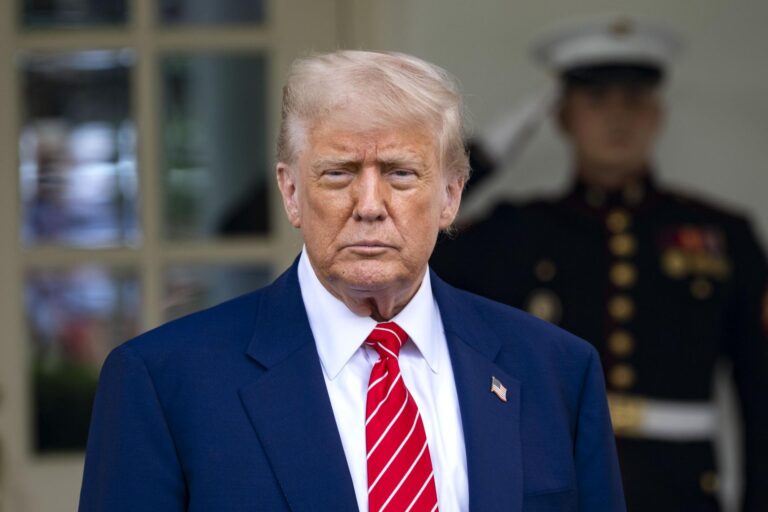Trump and Musk’s Proposal to Restructure USAID Sparks Intense Political Debate
Reimagining USAID: Trump and Musk’s Vision for a Leaner, Tech-Focused Agency
In a striking and controversial initiative, former President Donald Trump and billionaire innovator Elon Musk have unveiled a plan to significantly revamp the United States Agency for International Development (USAID). Their blueprint calls for a 30% reduction in the agency’s budget, a pivot toward technology-driven infrastructure projects, and an increased reliance on partnerships with private enterprises. They contend that USAID’s current operational model is antiquated and inefficient, advocating instead for a streamlined agency that harnesses cutting-edge innovation and market-based strategies to advance U.S. interests and global development.
This proposal has ignited a fierce backlash from Democratic leaders, who warn that such drastic changes could jeopardize vital humanitarian programs. Critics emphasize the risk of diminished support for disaster relief, global health initiatives, and efforts to strengthen democratic institutions abroad. Their primary objections include:
- Endangering ongoing aid commitments in vulnerable communities worldwide
- Concerns over the transparency and accountability of Musk’s private sector collaborations
- Potential politicization of humanitarian assistance, threatening its neutrality
- Job cuts within USAID’s workforce, affecting agency capacity
| Dimension | Trump-Musk Proposal | Democratic Opposition |
|---|---|---|
| Budget | Reduced by 30% | Threatens essential humanitarian funding |
| Strategic Focus | Emphasis on technology and infrastructure | Neglects health and social welfare programs |
| Governance | Increased private sector involvement | Raises questions about oversight and transparency |
| Workforce | Agency downsizing | Concerns over job security and institutional knowledge loss |
Democrats Rally to Protect USAID’s Mission and Funding
In response to the Trump-Musk initiative, Democratic lawmakers have mobilized to defend USAID’s critical role in global humanitarian and development efforts. They argue that the agency is a cornerstone of U.S. diplomacy and international stability, providing indispensable aid in health, food security, and crisis response. To counter the proposed dismantling, Democrats have launched a multi-pronged strategy that includes:
- Introducing bipartisan legislation aimed at preserving current funding levels
- Holding congressional hearings to scrutinize the implications of the proposed reforms
- Collaborating with advocacy organizations and international partners to showcase USAID’s achievements
| Program | Focus | Global Impact |
|---|---|---|
| PEPFAR | HIV/AIDS Treatment and Prevention | Has saved over 20 million lives since inception |
| Feed the Future | Combating Global Hunger | Improved food security in more than 20 countries |
| Global Health Security | Pandemic Preparedness and Response | Strengthened global readiness for health emergencies |
Potential Consequences for U.S. Diplomacy and International Humanitarian Leadership
The proposed overhaul of USAID represents a significant shift in American foreign policy, with far-reaching implications for the country’s diplomatic influence and humanitarian engagement worldwide. Experts warn that scaling back USAID’s presence and funding could erode decades of progress in building alliances and soft power, particularly in fragile regions where aid serves as a vital diplomatic instrument.
Among the key risks identified are:
- Interruption of critical global health and development programs
- Reduced capacity for rapid response to international crises
- Heightened geopolitical instability due to diminished U.S. involvement
| Sector | Possible Impact | Long-Term Risk |
|---|---|---|
| Health Programs | Cutbacks in vaccination and disease control efforts | Resurgence of preventable illnesses globally |
| Conflict-Affected Areas | Withdrawal of peacebuilding and stabilization support | Escalation of regional conflicts and humanitarian crises |
| Diplomatic Influence | Less engagement in multilateral forums | Decline in U.S. leadership on global issues |
Experts Advocate for Bipartisan Collaboration to Shape USAID’s Future
Amid the contentious debate, foreign policy analysts stress the importance of a balanced, bipartisan approach to reforming USAID. They caution that abrupt dismantling or radical restructuring without broad consensus could jeopardize U.S. strategic interests and humanitarian commitments worldwide.
Recommended strategies for constructive dialogue include:
- Conducting thorough evaluations of USAID’s programs to assess cost-effectiveness and impact
- Developing shared objectives that integrate both national security and humanitarian goals
- Organizing regular bipartisan forums to review progress and adjust policies as needed
- Ensuring transparent communication with the public to build support and understanding
These measures underscore the need for thoughtful reform that preserves USAID’s essential mission while adapting to contemporary challenges.
Conclusion: The Stakes of USAID’s Transformation
The escalating confrontation between former President Donald Trump, Elon Musk, and Democratic lawmakers over USAID’s future highlights a critical crossroads in U.S. foreign aid policy. This debate not only reflects differing visions for America’s role on the global stage but also raises fundamental questions about how best to support international development and humanitarian efforts in an evolving world. The resolution of this conflict will have lasting effects on U.S. diplomatic influence and the well-being of millions worldwide.







